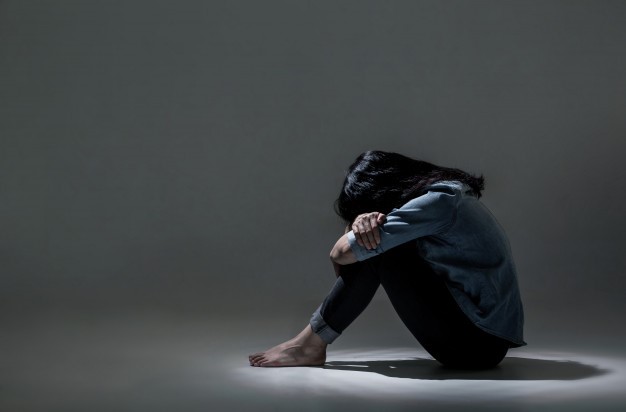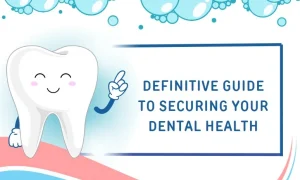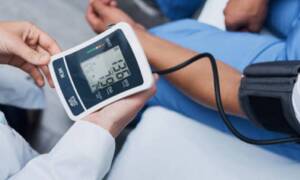We are what we eat. Some people take it way too seriously that it becomes an eating disorder. Orthorexia is an eating disorder that has been gaining much popularity among the many others that had crept into our lives with the toxic beauty standards. This condition is defined as an ARFID (Avoidant/Restrictive Food Intake Disorder) in which the person is exceptionally picky about what they take in.
Where a poor body image triggers bulimia and anorexia, the same cannot be said for orthorexia. In our current culture, many ambiguous myths are circulating labeling particular food groups “bad’ or “good.” Amongst the trends of veganism, keto-diets, and low-carb diets, many living with orthorexia are easily camouflaged.
Signs of orthorexia overlap with other eating disorders; however, DSM-5 hasn’t made it an official condition. Nevertheless, the repercussions can be equally devastating, physically, and mentally.
Signs of Orthorexia and How It Is Different From “Healthy Eating”
It is recommended that you keep a check on the things you eat. It would be best if you looked out for things like ingredients you’re allergic to, calorie intake, processing, etc. However, people with orthorexia overdo it, and here are a few symptoms and signs of orthorexia that may help you identify it.
1. Over-obsession about the quality of food
Somewhere along the line, we all are picky about the quality of food we take in. That is why many nutritionists and dietitians recommend processed and canned foods for a healthier life. People with orthorexia are highly particular about their elements on the plate from its products to sources like farm-fresh, organic, vegan, etc.
2. The unforgivable sin of breaking the rules
Let’s say you’re a vegetarian and absentmindedly eat something that is non-veg, you’re probably going to feel bad. However, if the same were for a person with orthorexia, they would go hysterical. What on-lookers may call over-reacting may be an actual panic attack and depression.
3. Skipping entire food groups
By definition, a healthy diet is one where you intake a sufficient amount of all food types according to requirements. What a person with orthorexia does in the name of healthy eating is basically depriving oneself of essential nutrients.
4. Indurate eating habits
Being conscious about when and what you eat can determine a lot about our health. But you leave an orthorexia patient stranded on an island; they’d choose to starve than eat anything other than what they require.
5. A constant fear of falling ill
People with orthorexia live in an overwhelming fear of contracting diseases or not being “healthy” enough. They will blame food for every illness they get and will do anything to avoid it. In contrast, healthy eating includes the understanding that falling ill is common, and that’s how your immunity can be boosted.
6. Feeling anxious or uneasy when being around certain foods
Personally, I’m not too fond of beef and cannot stand the smell of fried eggs, but that doesn’t mean that I get anxious when someone else eats it. People with orthorexia will easily get triggered when they witness someone else feasting on foods they don’t like. They may go as far as to reprimand and lecture them.
7. Weight loss
Although this symptom is unintended, it is inevitable when you’re going to be omitting essential food groups. However, this is not the clinical signs of orthorexia. Such people can be moderate weight or even overweight.
Read Want surefire and healthy ways to lose weight in a week?
Causes:
I mentioned above how orthorexia is not directly triggered by a poor body image, then what pushes a person to such great extents only to remain ‘healthy’?
- Obsessive-Compulsive Disorder (OCD)
- Depression and anxiety
- Low self-esteem
- Past experiences of dieting
- Feeling unworthy or unacceptable by society
Health Risks and Consequences:
Like other eating disorders, orthorexia comes with its fair share, and many are similar to generalized unhealthy eating habits. A few typical and expected risks are:
- Fatigue and malnutrition
- Depression and severe anxiety
- Irritability
- Low stamina
- Mood swings
- Self-loathe
- Social isolation
How to Assess Yourself or a Loved One for Orthorexia
Often the onset of orthorexia is so gradual and natural that you may not realize it. It is easier to detect in another person but not so easy in yourself. So here are a few questions you can ask yourself or your loved one as a beginner assessment.
- Have you ever wondered how it would be like to not think so much about your diet and instead give your loved ones time?
- Do you spend 2-3 hours just planning your meals for the day?
- Do you involuntarily find yourself getting skeptical about the food you have already checked numerous times?
- Are you overcome by severe anxiety, guilt, or shame when you do not follow your plan?
- Does it feel humanly impossible to eat food prepared by anybody but yourself?
- Has your obsession with healthiness ever affected your relationships, work, and social life?
- Do you feel “in control” practicing such a hard diet?
- Have you ever condescendingly viewed a person who does not share these “health concepts” with you?
- Do you fast intermittently?
How many ‘yes’ did you get? This can be an easy way to determine how far you’ve come in your condition as well by grading each question on a scale from 1-10.
How to Support a Loved one with orthorexia
If you’re someone having to witness a loved one succumb to this condition, you will often feel helpless and unheard. Considering that only a mere 1% of people are victim to orthorexia, there is still a lot of research to be done on it, which leaves many gray areas. So now you’re thinking, how can I help someone with orthorexia?
Here are a few tips:
- Choose a suitable time and place to talk to your loved one.
- Put forth your concerns and allow them to confess.
- Be flexible and prepared to expect denial and resistance because keep in mind to them this is normal.
- Ask them if they wish to change, and what is the reason? Many people with orthorexia want to get rid of the condition but are lost and need a helping hand.
Before consulting a doctor for orthorexia treatment, you need to get them fully willing, so avoid ultimatums and demeaning comments about weight and figure. Try to understand that it is not as easy as “accepting themselves.”
- Encourage your loved one to receive treatment.
- Prepare them to be strong when facing withdrawal symptoms and depression.
- Always show that you’re by their side by attending therapy sessions.
Orthorexia treatment varies from medicinal, nutritional to therapy. It is recommended to get all treatments simultaneously or as required for active recovery. Therapies include cognitive and dialectical behavioral therapy to change emotions and negative thoughts. This, when accompanied by proper medication and nutritional counseling, brings the patient back on track.
During the treatment, be mindful of orthorexia’s signs and keep yourself updated with your loved one’s progress. Try to be extremely patient and understanding, but do not forget to take care of your needs first.

















